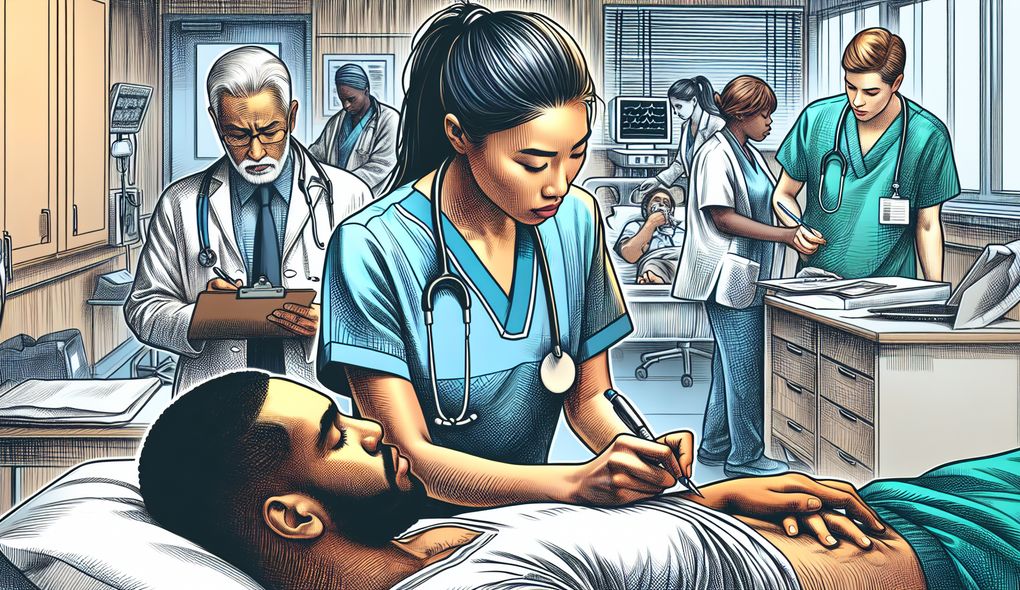How do you effectively communicate with patients and their families to educate them on treatment plans and preventive care?
JUNIOR LEVEL

Sample answer to the question:
When it comes to effectively communicating with patients and their families to educate them on treatment plans and preventive care, I believe in the power of clear and concise communication. I ensure that I speak in a language that is easily understandable, avoiding medical jargon as much as possible. I take the time to actively listen to their concerns and questions, showing empathy and understanding. I also utilize visual aids and written materials to enhance their understanding. Additionally, I follow up with patients and their families after the initial conversation to address any further questions or concerns they may have.
Here is a more solid answer:
To effectively communicate with patients and their families, I prioritize the use of plain language and avoid medical jargon to ensure clear understanding. I take the time to actively listen to their concerns, addressing them with empathy and understanding. Utilizing visual aids and written materials, I enhance their comprehension and provide them with tangible resources for future reference. For example, I have created patient-friendly brochures that outline treatment plans and preventive care measures. Following the initial conversation, I make it a point to follow up with patients and their families to ensure their comprehension and address any further questions or concerns they may have. This personalized approach fosters trust and strengthens the patient-provider relationship.
Why is this a more solid answer?
The solid answer expands on the basic answer by providing specific examples of using plain language and visual aids to enhance communication. It also mentions the creation of patient-friendly resources and the importance of follow-up. However, it could still be improved by including more details about the candidate's past experiences and outcomes.
An example of a exceptional answer:
Effectively communicating with patients and their families is crucial for educating them on treatment plans and preventive care. I prioritize establishing a rapport with patients and families by actively listening to their concerns, validating their emotions, and addressing their questions and fears. I utilize various communication techniques such as motivational interviewing and teach-back method to ensure comprehension. For instance, I once had a patient who was hesitant to follow the prescribed treatment plan due to financial concerns. I empathized with her situation, explained the potential complications of non-compliance, and connected her with resources for financial assistance. Through these efforts, she gained trust in the care provided and adhered to the treatment plan effectively. Additionally, I actively involve patients and families in decision-making, encouraging their participation and empowering them to take ownership of their health. This approach promotes a patient-centered care model and improves patient outcomes.
Why is this an exceptional answer?
The exceptional answer goes beyond the solid answer by providing specific techniques like motivational interviewing and the teach-back method. It also includes a real-life example that showcases the candidate's empathy, problem-solving skills, and ability to connect patients with resources. Furthermore, it emphasizes the importance of involving patients and families in decision-making to empower them. The answer demonstrates a deep understanding of patient-centered care and its impact on patient outcomes.
How to prepare for this question:
- Reflect on past experiences where you effectively communicated with patients and families about treatment plans and preventive care. Think about the outcomes and lessons learned from those interactions.
- Familiarize yourself with common medical jargon and practice explaining medical concepts in plain language.
- Research and understand different communication techniques, such as motivational interviewing and the teach-back method, and how they can be applied in the healthcare setting.
- Stay updated on current preventive care guidelines and treatment options to provide accurate information to patients and families.
- Develop your active listening skills by practicing empathy and validation in your everyday interactions.
What are interviewers evaluating with this question?
- Communication Skills
- Patient Education
- Empathy

